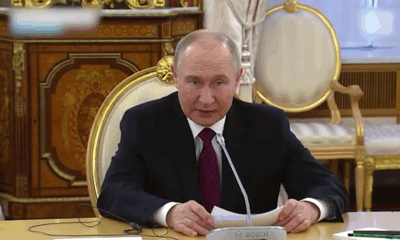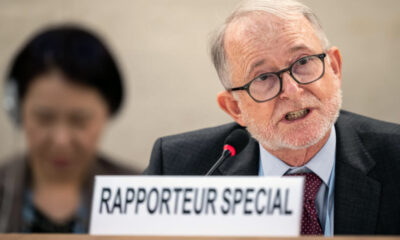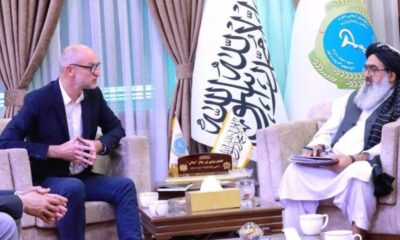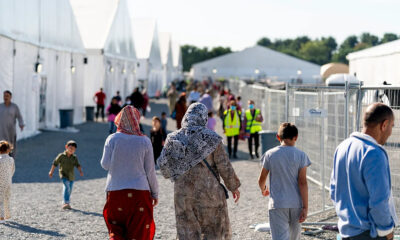Latest News
At least 17 killed in Philippines troop plane crash
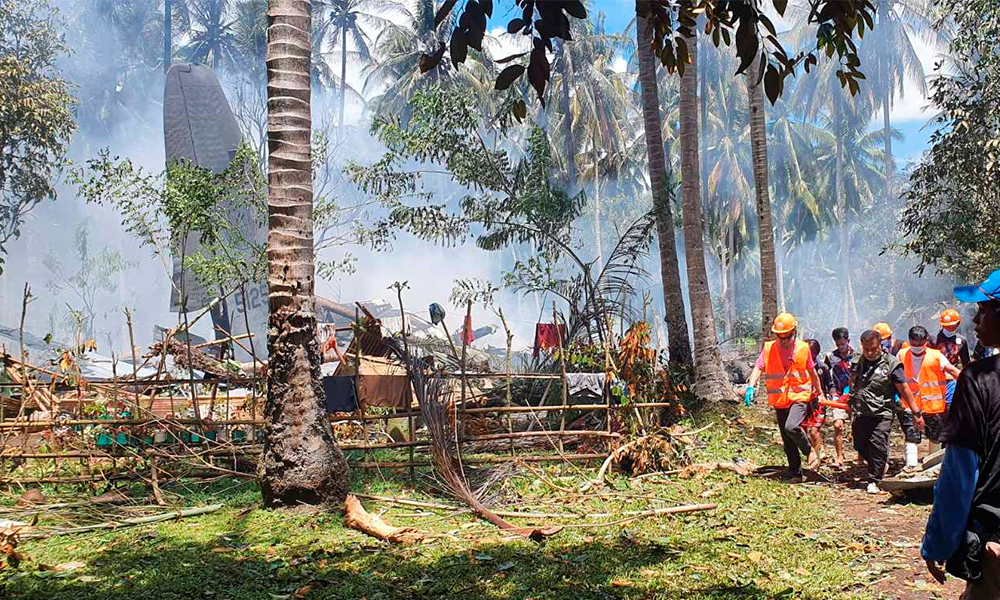
At least 17 people were killed when a Philippines Air Force plane carrying troops crashed on landing in the south of the country and broke up in flames on Sunday, the country’s worst military air disaster in nearly 30 years.
The Lockheed C-130 transport aircraft crashed at Patikul in Sulu province, in the far south of the archipelago nation where the army has been fighting a long war against Islamist militants from the Abu Sayyaf and other factions.
Seventeen bodies had been recovered and 40 injured had been rescued so far, Defence Minister Delfin Lorenzana said in a statement. Most of the 92 people aboard were troops flying from Laguindingan Airport, some 460 km (290 miles) to the northeast.
“Rescue and recovery is ongoing,” Lorenzana said.
Pictures from the scene showed flames and smoke pouring from wreckage strewn among trees as men in combat uniform milled around. A large column of black smoke rose from the coconut palms into the blue sky.
Military chief Cirilito Sobejana said the plane had “missed the runway trying to regain power.”
A military spokesman, Colonel Edgard Arevalo, said there was no indication of any attack on the plane, but that a crash investigation had not begun and efforts were focussed on rescue and treatment.
Sobejana said in a message to Reuters that the plane had crashed a few kilometers (miles) from Jolo airport at 11:30 a.m. (0330 GMT) and had been carrying troops.
“We are currently attending to the survivors who were immediately brought to the 11th Infantry Division station hospital in Busbus, Jolo, Sulu,” he said.
The island is about 950 km (600 miles) south of the capital, Manila.
The Lockheed C-130H Hercules aircraft, registration 5125, had only arrived in the Philippines recently.
It was one of two aircraft granted by the U.S. government through the Defense Security Cooperation Agency, according to a government website announcement in January. It quoted an air force spokesman as saying the aircraft would provide enhanced capability for heavy airlift missions.
The website C-130.net said the plane that crashed had first flown in 1988. The model is a workhorse for armed forces around the world.
The Philippines armed forces have had a patchy air safety record. Last month a Black Hawk helicopter crashed during a training mission, killing six people.
A Philippines Air Force C-130 crash in 1993 killed 30 people. A 2008 crash by the civilian variant of the Lockheed plane flown by the Philippines Air Force killed 11 people, according to the Aviation Safety Network.
In the country’s worst plane crash, an Air Philippines Boeing 737 crashed in 2000, killing 131 people.
Latest News
Putin says Moscow will continue effective cooperation with Islamic countries

Russian President Vladimir Putin says despite the difficult international situation, Moscow will continue its effective cooperation with Islamic countries.
Putin made this statement in his opening message to the 16th International Economic Forum “Russia–Islamic World,” also known as the Kazan Forum.
He added that Russia will expand its relations with these countries in various sectors.
“For centuries, our multi-ethnic country has embraced broad cooperation with the Islamic world, and today, despite the challenges in international cooperation, we continue to effectively and consistently expand our economic, scientific, educational, humanitarian, and interregional ties,” he stated.
The Kazan Forum, a major global platform for dialogue between Russia and the Islamic world, is being held in Kazan, Russia, from May 13 to May 18.
Officials from the Islamic Emirate have also been invited to attend the forum, and a delegation from Afghanistan is expected to participate.
Meanwhile, several analysts view this event as a valuable opportunity for Afghanistan to enhance engagement and cooperation with the international community, particularly with countries of the Commonwealth of Independent States (CIS).
Although Russia has not officially recognized the Islamic Emirate, in recent months it has reopened diplomatic channels and cooperation with Afghanistan, including suspending the designation of the IEA as a banned organization.
Latest News
Richard Bennett ‘shocked’ by explosive testimony of ex-British soldiers in killings of Afghans
The IEA said that foreign forces committed many war crimes in Afghanistan while stationed in the country over 20 years.
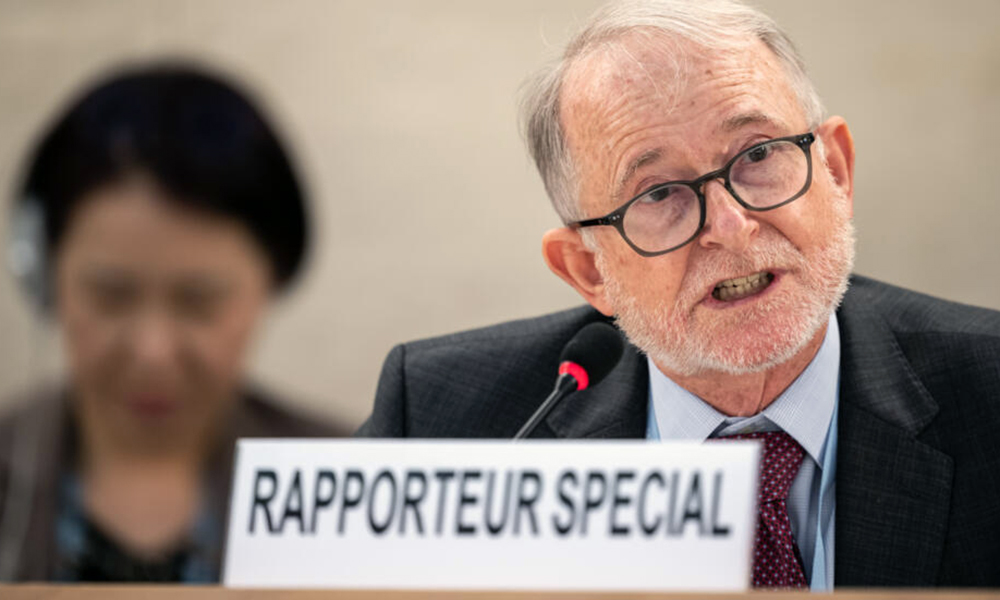
Richard Bennett, the UN Special Rapporteur on Human Rights in Afghanistan, has called for justice to be served over the unlawful killings by UK special forces in Afghanistan.
In a post on X on Monday, Bennett said the revelations in a recent investigation by BBC’s Panorama were “shocking”.
The Islamic Emirate also responded to the news and stated that foreign forces committed many war crimes in Afghanistan while stationed in the country over 20 years.
The IEA says these new confessions prove the extent of what transpired.
The BBC report featured testimony by several ex-soldiers on the unlawful killings while British troops were in Afghanistan.
These ex-soldiers told how British troops killed unarmed civilians in their sleep and executed blindfolded detainees.
One former soldier who served in Afghanistan recalled an incident in which troops “handcuffed a young boy and shot him. He was a child, not even close to fighting age.” He added that the killing of detainees by British special forces “became routine.”
Allegations of war crimes involving British forces in Afghanistan have circulated for years, and formal investigations are ongoing.
However, these inquiries and investigations by the BBC have still not led to any charges being brought against the alleged culprits or any meaningful justice for the victims.
Latest News
Trump administration to end protection program for Afghans
Over 8,000 Afghans were approved for TPS as of last year, according to federal statistics.
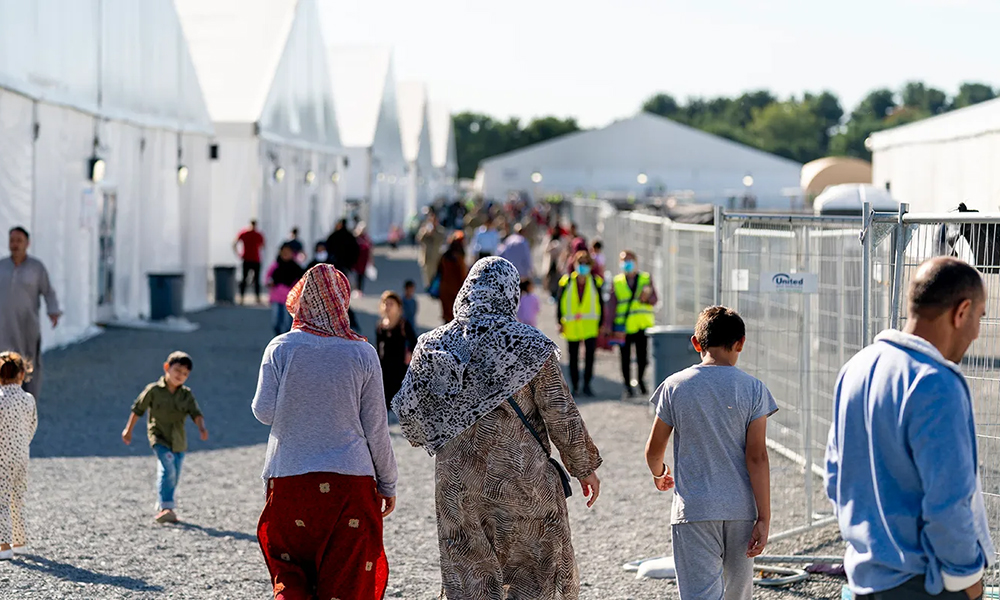
The Trump administration is ending the Temporary Protection Program that offered deportation protection to thousands of people from Afghanistan.
The Department of Homeland Security said Monday it will end the program on July 12.
The TPS program allows migrants to get work permits and temporary reprieve from deportation if the U.S. government determines it is unsafe for them to return to their home countries due to war, natural disaster or other issues.
Over 8,000 Afghans were approved for TPS as of last year, according to federal statistics.
TPS was last extended for Afghanistan in 2023, and it was set to expire in May unless the Trump administration chose to grant another extension.
“This decision is unconscionable and will have long-lasting ripple effects,” #AfghanEvac, a group that helps relocate Afghans, said in a post on X.
-
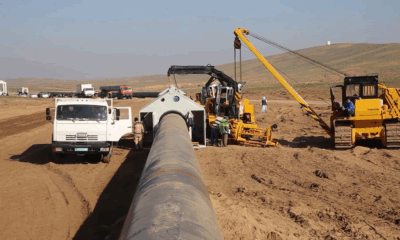
 Latest News5 days ago
Latest News5 days agoTAPI pipeline to reach Herat by end of 2025: Ministry
-

 Sport5 days ago
Sport5 days agoIPL 2025: Dharamsala match abandoned due to security concerns
-

 Regional4 days ago
Regional4 days agoIndia says military stations attacked by Pakistan drones and missiles
-
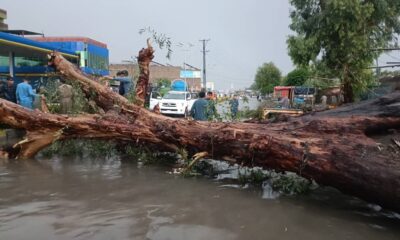
 Latest News4 days ago
Latest News4 days agoOne dead, dozens injured as powerful storm strikes Jalalabad, Afghanistan
-

 Latest News4 days ago
Latest News4 days agoEx-Afghan deputy speaker Qadeer back in Kenyan court for criminal case
-
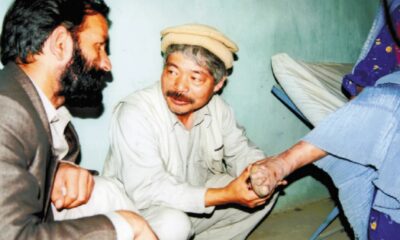
 Health4 days ago
Health4 days agoJapanese charity Peshawar-Kai to resume leprosy treatment in Afghanistan
-
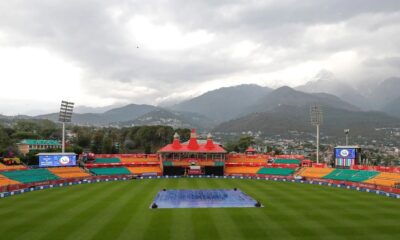
 Sport4 days ago
Sport4 days agoIndia suspends Indian Premier League T20 cricket tournament
-

 Latest News3 days ago
Latest News3 days agoPakistan says India launched attack on Afghanistan, India denies


